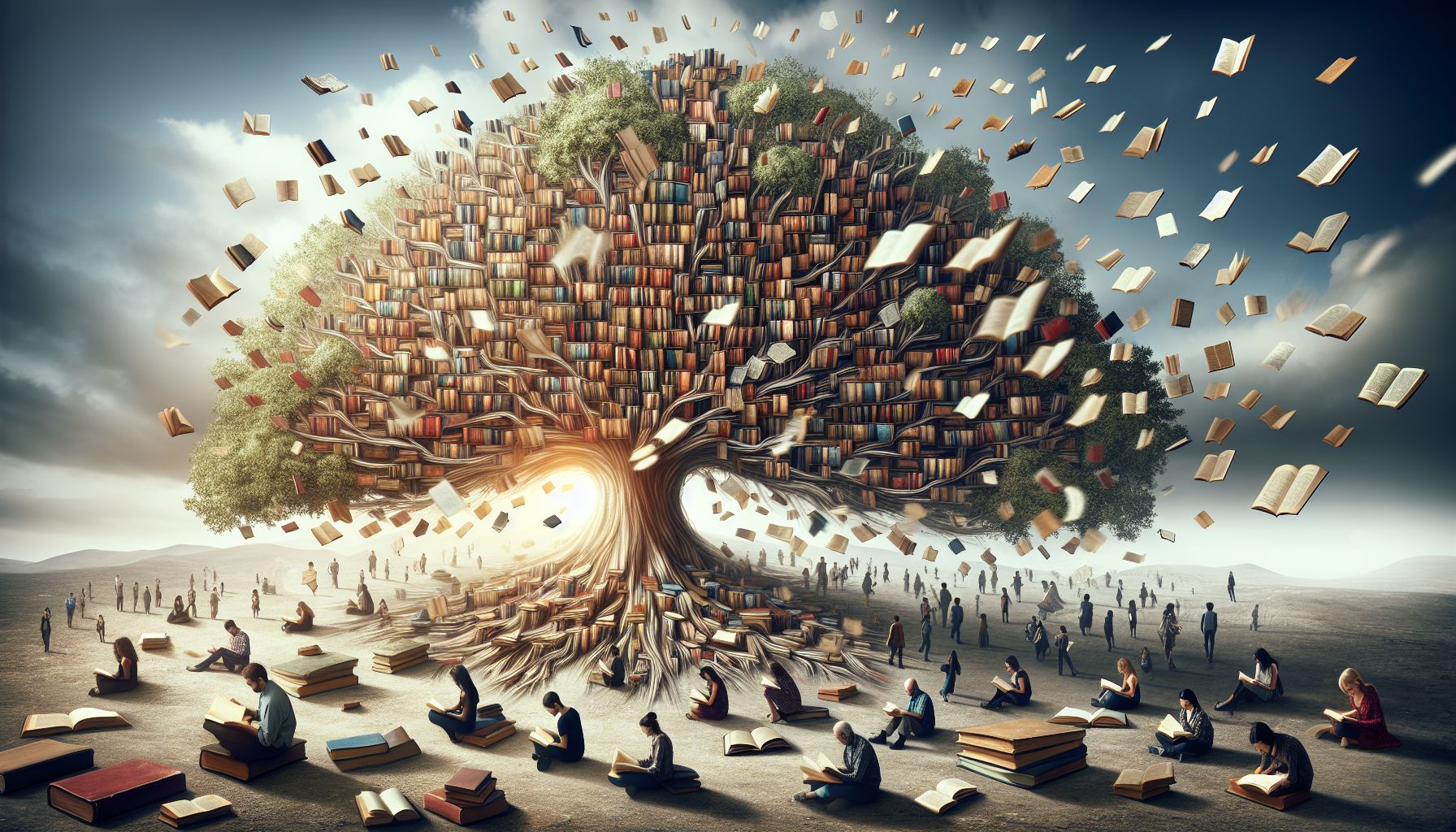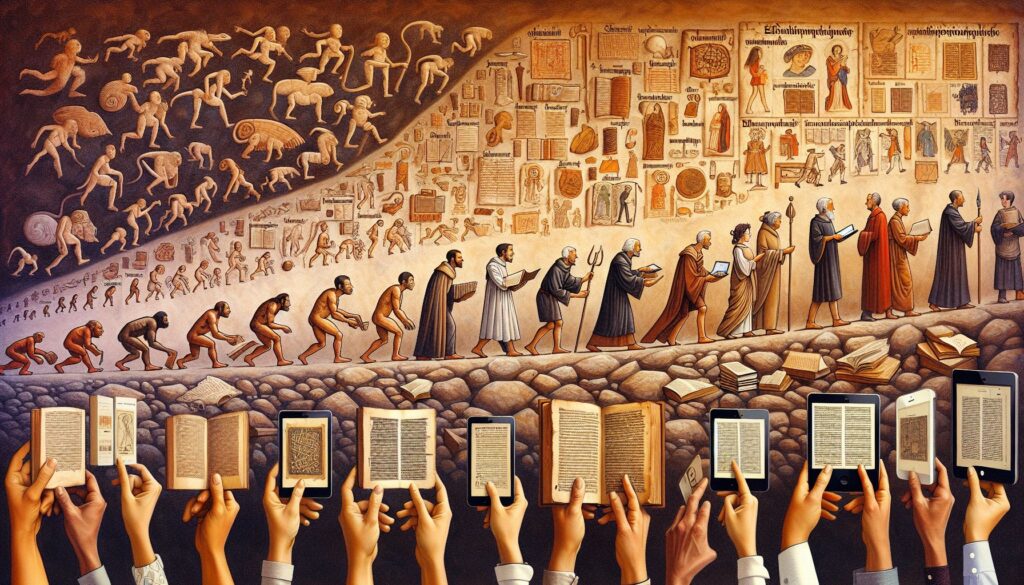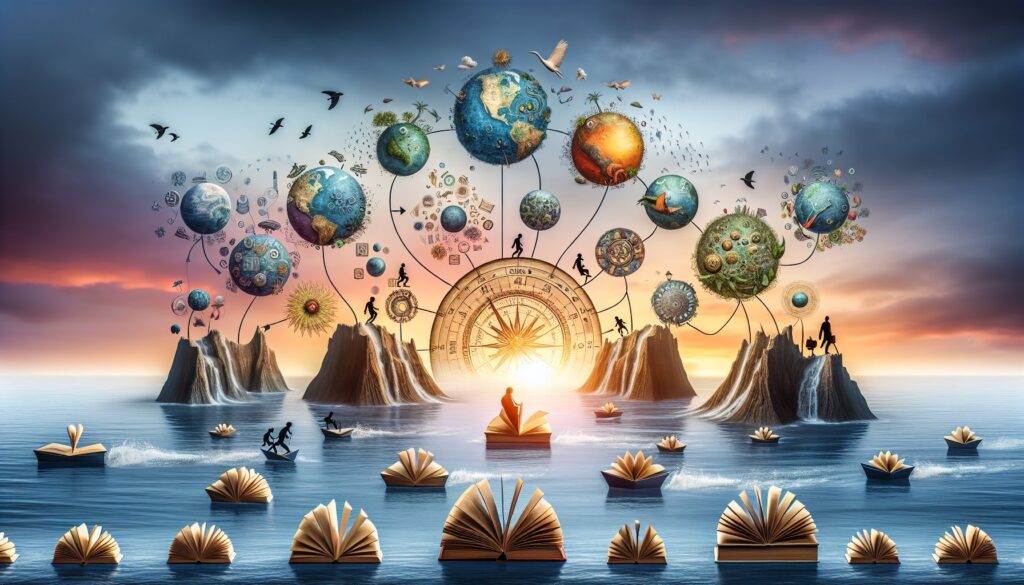Nestling into the world of printed words and bound paper, one discovers a realm of secret fables, timeless lessons, and profound sentiments. Each book, whether a delicate sonnet anthology, a chilling psychological thriller, or an exhilarating science fiction saga, offers a path towards a meticulously woven reality. It doesn’t matter if you like to lose yourself in riveting plots, engross your senses in poetic verse, or gain insights from factual narratives—books are versatile enough to enchant everyone.
The diversity within literary genres is vast. Classic literature invariably offers a gripping discourse on society’s serendipities, with masterpieces like Tolstoy’s ‘War and Peace’ presenting meticulous characterizations and profound social commentary. Concurrently, fantasy literature immerses readers in entirely different worlds, with J.R.R. Tolkien’s ‘The Lord of the Rings’ showcasing intricate lore and magical mythos. Meanwhile, modern bestsellers like ‘The Hunger Games’ by Suzanne Collins encompass timely social themes within tense, action-rich narratives.
The significant evolution in reading habits is also noteworthy. While many still cherish the tactile allure of physical books, an increasing number prefer digital formats for mobility and cost-effectiveness. Audiobooks have also gained popularity, offering an engaging, hands-free approach to literature, perfect for modern, multi-tasking lives.
Suddenly, the realm of literature extends beyond the reader’s imagination to the social sphere. Inspirational words penned down by figures like Maya Angelou have spurred cultural revolutions, while dystopian novels like George Orwell’s ‘1984’ have prompted questioning of governmental authoritarianism. Books have, thus, evolved from mere repositories of stories to influential agents molding intellectual perspectives and societal norms.
The literary world’s quintessential element is its engagement with readers. Each reader delves into his chosen book with unique perceptions, projecting personal experiences onto the unfolding narrative. Consequently, the same book can mean different things to different people, making the act of reading both a shared and highly personal experience.
Despite the widespread digital transformation, books continue to maintain their sacred allure. Even as e-books and audiobooks gain traction, the fascination of turning crisp pages, the smell of fresh ink, and the affectionate strain of a well-waimed spine ensure that physical books won’t be banished to antiquity. Instead, we witness a harmonious existence of various reading formats, broadening the influence of literature on diverse communities and cultures.
In conclusion, the realm of books is an enchanting labyrinth that invites us to lose ourselves only to find something unexpected. Books serve not just as escapes into alternate realities, but also as mirrors reflecting our society’s many facets. Furthermore, their metamorphosis from tangible repositories to digital and audio formats has only increased their reach. Indeed, as we continue to advance technologically, books—regardless of their form—remain humanity’s silent but powerful intellectual companions.
So, whether you’re a tentative novice dipping your toes into the vast sea of literature or a seasoned bookworm devouring page after page, the spectrum of books promises an unending journey. As you turn each page, remember that this journey does not stop at the last period. Instead, it reverberates into real life, shaping perspectives and challenging norms—a quiet revolution in ink and stories.




